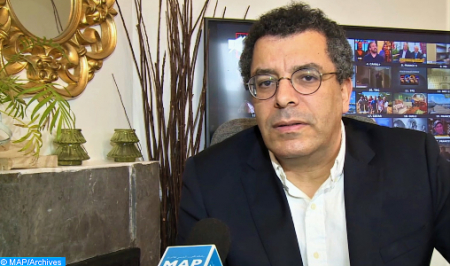Moroccan Sahara: Madrid’s Support for Autonomy Plan Highlights Algeria’s Unprecedented Isolation – Political Analyst –
Spain’s new stance recognizing that the autonomy plan proposed by Morocco is the most serious, realistic and credible basis for resolving the dispute over the Moroccan Sahara “highlights a level of isolation and Algerian loneliness never reached before,” says political scientist Mustapha Tossa. “As the stubborn godfather of the Polisario separatists, Algiers continues to navigate against the tide of history, geography and world diplomacy,” he underlines in an analysis published by the Atlasinfo website. According to Mr. Tossa, Algeria’s support for the separatist militias has no other objective than to weaken Morocco and maintain tension in the region. ”The Algerian regime no longer knows where to turn, immersed as it is in a contradiction of attitudes and postures”, notes the political scientist, adding that on the one hand, it preaches in all the international fora that it is not involved in this issue, while, on the other hand, he urgently summons his ambassador to Madrid after the letter of support for Morocco’s sovereignty over the Sahara, sent by the President of the Spanish government Pedro Sanchez to HM King Mohammed VI. The snowball effect on the European scene which followed the Spanish turn underlined the great Algerian solitude, with many countries confirming their support and adherence to the option of autonomy proposed by Morocco, he points out. After the United States, the Arab world, the United Nations, the countries of the European Union validate the Moroccan approach, with the immediate effect: The Algerian regime, which has long hidden behind false pretexts in order not to assume its responsibilities, found itself in the situation of a trapped rabbit, he adds. “Today, even if on the political and diplomatic level, Algiers recognizes having lost as its long silences and its epidermal reactions suggest through the summons of its ambassador to Madrid, its media is heavily locked in an autistic logic. This refusal to see the realities in the face is accompanied by a desire to continue to maintain chimeras and lies”, he underlines, adding that the loneliness of the Algerian regime is also seen in its chronic inability to organize the summit of the Arab League. “Scheduled initially for November 1st with the idea of coupling it with a national event, this summit is still not guaranteed to take place in Algiers. So strong is the mistrust of Arab countries towards an Algerian regime with changing moods and chronic instability,” the analyst notes. These changing moods were undoubtedly the cause of the loss of credit with the Spanish authorities when they saw how lightly this regime managed a matter as vital and as structuring for peace in the region as trade and distribution of gas, says Mr. Tossa, pointing to a growing concern that is taking hold in people’s minds. And if this Algerian regime, stuck on all sides, does not react with the intelligence that the situation requires, perhaps we should fear provocations on its part to try to fold the cards and scramble new alliances? the political scientist wonders, evoking in this regard direct or subcontracted provocations to the armed militias of Polisario. “This concern is widely shared by many think tanks who see this regime’s military headlong rush as inevitable evidence to come. It reflects the inability of this military Algerian regime to change its founding dogma, that of being a permanent factor of division and instability, driven by a largely fantasized desire for power and domination”, he stresses. More than ever and because the highest of the solitudes experienced by the Algerian authorities can cause uncontrolled slippages, the European, American and Arab allies, all worried about its possible evolutions, must give it a truthful speech on its perceptions of the new power relations or risk living on the margins of the international community, concludes Mr. Tossa.

